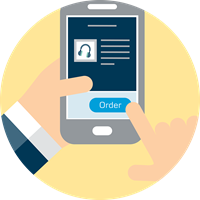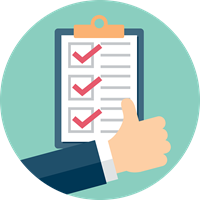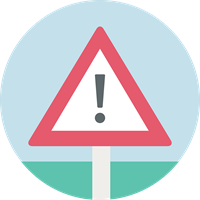How to build a strong financial future
Most people need credit. Without it we might not be able to buy houses or pay bills in instalments.
You may think that if you’ve never borrowed money before, you’ll easily get it when you need to.
Read on to see why that’s not the case.

What is credit?
‘Credit’ is when we borrow money to buy something and repay it with interest. Or pay for something in instalments, like a phone contract.
People can use credit when they can’t afford to buy something upfront. They may prefer to break down one big cost into smaller monthly chunks.
The term credit covers credit cards, personal loans, overdrafts, as well as buy-now-pay-later and store cards.
Your credit history is at the root of being able to borrow.

What's my credit history?
If you want credit, you need to borrow from a bank, building society or credit card company.
They want evidence that you can pay this money back as agreed. They look at your credit history to see if you can do so.
It's also linked to your credit score.
This is influenced by how much you earn, how much you regularly spend, and how good you’ve been at repaying your bills in the past.
Lenders don’t decide this score themselves. Instead, they ask a credit reference agency for it. Different lenders use different agencies, but in the UK, there are four - Equifax, Experian, TransUnion and Crediva.
Because of this, there is no such thing as a universal credit score.
You can check yours by signing up for an account with any of those credit agencies. They usually have an app, which makes it easier to check your latest score too. It can vary depending on the agency, but if it’s excellent with one it’s unlikely to be terrible with the others.
How lenders decide whether to give you credit - Citizens Advice ![]() .
.

Building it up for the future
If you have a phone contract and always pay your bill on time, that’s helps. As does being on the electoral register.
To take things to the next level, you may want to use a credit card with a low limit and make sure you pay the bill in full every month.
Get a low credit limit to keep yourself safe - £250 should be more than enough – and don’t use the card unless you definitely have the money to repay your bill in full. If you want to withdraw cash, don’t use the credit card for that. It’s expensive.
Your credit card provider sends your statement before your bill is due. This tells you how much it’s going to be and when you need to pay it.
If you clear your bill every month, it will steadily start to build up a picture of you as a responsible borrower.
There’s another reason you may want a credit card. If you use it for online shopping, you have greater protection than a debit card if something goes wrong. This is because of Section 75 of the Consumer Credit Act.

The dangers of uncontrolled debt
Before you think about borrowing, ask yourself if you really need whatever you’re thinking of buying, whether you can afford to pay it back and whether you’re getting the best credit – could you save money by shopping around?
Be careful of credit cards. They work by charging you interest on what you haven’t repaid – and usually at a high rate, especially if you haven’t had a card before.
If you rely on them, you could soon find your debt getting out of control if you don’t manage it properly.
To see how much difference only making the minimum repayments on your card makes, have a look at our managing repayments page.


